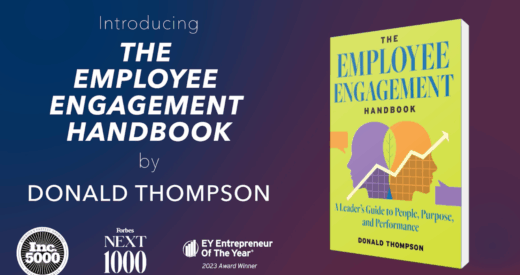 Change is inevitable, yet for many, it’s accompanied by stress, discomfort, and uncertainty. Dr. Deborah Gilboa, a board-certified family physician, resilience expert, and renowned speaker, offers a fresh perspective: “What doesn’t kill us usually makes us miserable,” she says, challenging the old adage. But the good news? We don’t have to stay miserable. With the right skills, we can not only survive change but thrive through it.
Change is inevitable, yet for many, it’s accompanied by stress, discomfort, and uncertainty. Dr. Deborah Gilboa, a board-certified family physician, resilience expert, and renowned speaker, offers a fresh perspective: “What doesn’t kill us usually makes us miserable,” she says, challenging the old adage. But the good news? We don’t have to stay miserable. With the right skills, we can not only survive change but thrive through it.
Gilboa explains that resilience isn’t something you’re born with—it’s a skill set that can be developed. Drawing on her experience helping individuals and organizations manage change effectively, the TEDx veteran identifies eight essential skills to build resilience and make change less daunting.
1. Emotional Regulation: Mastering Your Reactions
The first step to navigating change is learning to regulate your emotions. Big shifts often trigger fear, frustration, or sadness. These feelings are normal, but they don’t have to dictate your actions. Emotional regulation allows you to acknowledge your emotions without letting them control you.
Gilboa advises practicing mindfulness and naming your emotions. “Instead of saying, ‘I’m angry,’ try saying, ‘I’m feeling angry right now,’” she explains. This small rephrasing can create space to respond thoughtfully rather than react impulsively.
2. Self-Awareness: Understand Your Strengths and Triggers
Self-awareness is key to managing stress in new situations. When you know your strengths, you can lean on them. When you understand your triggers, you can prepare for moments when stress is likely to arise.
“Ask yourself: ‘What about this change is bothering me the most?’ Is it the loss of control? The uncertainty?” Gilboa says pinpointing your specific stressors allows you to address them directly, rather than feeling overwhelmed by the entire situation.
3. Perspective-Taking: Reframe the Situation
A powerful tool for navigating new circumstances is the ability to shift your perspective. “Stress itself isn’t inherently bad,” Gilboa explains. “Stress, like exercise, can build resilience if we approach it the right way.”
By viewing change as an opportunity for growth rather than a threat, you can reduce feelings of helplessness and increase your ability to adapt.
4. Problem-Solving: Break Challenges into Steps
Large changes can feel insurmountable. That’s where problem-solving skills come into play. Instead of trying to tackle everything at once, break challenges into smaller, manageable steps.
For instance, if you need to learn a new system or technology at work, start by identifying the resources you need, setting a schedule for training, and asking for support when necessary. “Competence builds confidence,” Gilboa notes, “and confidence makes future challenges feel less overwhelming.”
5. Self-Efficacy: Believe in Your Ability to Adapt
Self-efficacy—the belief that you can influence outcomes—is crucial for resilience. Gilboa stresses the importance of recognizing past successes as evidence of your ability to adapt and thrive.
“Think back to a time when you navigated a big change successfully,” she says. “What skills or strategies did you use then? Chances are, those same skills can help you now.”
6. Connection: Lean on Your Support System
Resilience isn’t a solo endeavor. Strong relationships can provide the emotional and practical support needed to navigate uncertainty. Gilboa highlights the importance of seeking out people who validate your feelings while encouraging your growth.
“Surround yourself with those who can say, ‘I hear you, and I believe you can handle this,’” she says. Building a support network at work or in your personal life can make the toughest changes more manageable.
7. Optimism: Focus on What’s Possible
Optimism doesn’t mean ignoring challenges. Instead, it’s about focusing on what’s possible and maintaining hope for the future. Gilboa explains that optimism is a skill you can practice by looking for the advantages in every situation and setting small, achievable goals.
“When you celebrate small wins, you remind yourself that progress is possible, even during difficult times,” she says.
8. Flexibility: Embrace Adaptability
Finally, resilience requires flexibility. Change often involves letting go of old habits or expectations and finding new ways to move forward. Gilboa suggests viewing adaptability as a strength rather than a sacrifice.
“Flexibility doesn’t mean you’re giving up—it means you’re growing,” she says. Whether it’s adjusting to a new role at work or a shift in personal circumstances, the ability to adapt is what allows us to thrive.
How Leaders and Organizations Can Foster Resilience

While individual resilience is essential, leaders and organizations play a pivotal role in creating an environment where employees can thrive during uncertainty and change. Gilboa emphasizes the importance of empathy, noting that one of the most powerful things a leader can do is acknowledge the challenges their team is facing. Managers can make their employees feel valued and supported simply by using the phrase “I care about what you’re going through,” she says.
“If people are upset about a problem, they will be more resilient if you show empathy for their feelings,” Gilboa says.
Beyond empathy, fostering a sense of connection and belonging within teams is critical. When employees feel supported by their peers and leadership, they are better equipped to navigate uncertainty. This includes encouraging open communication, actively listening to employee concerns, and providing opportunities for collaboration. Additionally, organizations can invest in training and resources that help employees develop resilience skills, such as emotional regulation and problem-solving.
Leaders should also be mindful of creating structures that reduce unnecessary stressors. For example, clarity in communication, predictable workflows, and inclusive policies can help maintain continuity and smooth out potential problems. By addressing systemic challenges and fostering a culture of trust, organizations can empower their employees to adapt and excel during times of change.
Building Resilience is a Journey
Managing stress during change isn’t about eliminating discomfort entirely—it’s about learning to navigate it with skill and confidence. By developing emotional regulation, building strong connections, and practicing flexibility, you can turn life’s challenges into opportunities for growth.
Change may be inevitable, but with the right tools, we can face it with resilience, empathy, and optimism. As Gilboa puts it, “The goal isn’t to avoid change—it’s to navigate it in a way that leaves us stronger.”
To hear more from Gilboa on using a growth mindset to reframe your attitude toward change, listen to the full episode of the Diversity: Beyond the Checkbox podcast, “Working Through Stress and Building Resilience.”
Kaela Sosa is co-founder and Manager, Curriculum and Programming at The Diversity Movement. Her expertise includes psychology, gender identity and sexual orientation and racial identities. Kaela has written and spoken about a range of topics: active allyship, the inclusive talent lifecycle, disability etiquette, LGBTQ+ inclusion and inclusive language. At The Diversity Movement, she leads the development and execution of learning programs, including digital learning, online courses, certificate programs and certification opportunities. Connect with or follow Kaela on Linkedin to learn more.




